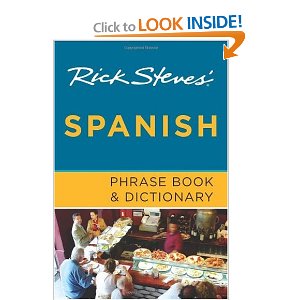
I’ve been blogging lately about beginner piano lessons — but of course that’s only one of many ways to push into uncharted waters.
My friend Catherine recently started beginner Spanish classes. She blogged about it, saying in part:
I’m resisting my instinctive urge to give up on something at which I’m not automatically proficient (read: awesome).
If this were a class on Napping 101, I would already have an A++ in the bag. Conversely, if this were gym class, I wouldn’t care much about my abilities because athletics are not my gift. I already know that, so no pressure. I do recall with something like fondness how my high school gym teacher, Mrs. Reilly, would stifle laughter at my bumbling attempts at field hockey and (heavens!) archery. Oddly, I wasn’t embarrassed. I knew she wouldn’t grade me on whether I was any good at whatever activity we were tackling, rather on my effort. So, I tried, I ran slowly and goofily, then headed back to the library, where I belonged.
But that’s the rub with this Continuing Ed business: academics are supposed to be my arena!
You can read more on Catherine’s blog, The Flamingo Room, here.
Of course we like to do things we’re good at — it feels good to feel smart and accomplished and successful. We love that feeling of mastery.
But how did you get to be good at that thing in the first place? Did you wake up one morning dancing ballet? Did you emerge from the womb with mad Excel skills?
Or did you have to make a lot of dumb mistakes, go slow, ask questions and eventually acquire the skills?
Author Malcolm Gladwell put forward what he calls the 10,000 hour rule — as Time magazine writes it:
Studies suggest that the key to success in any field has nothing to do with talent. It’s simply practice, 10,000 hours of it — 20 hours a week for 10 years.
Share it on Facebook / Twitter / Digg / StumbleUpon / Reddit / Fark / Del.icio.us

